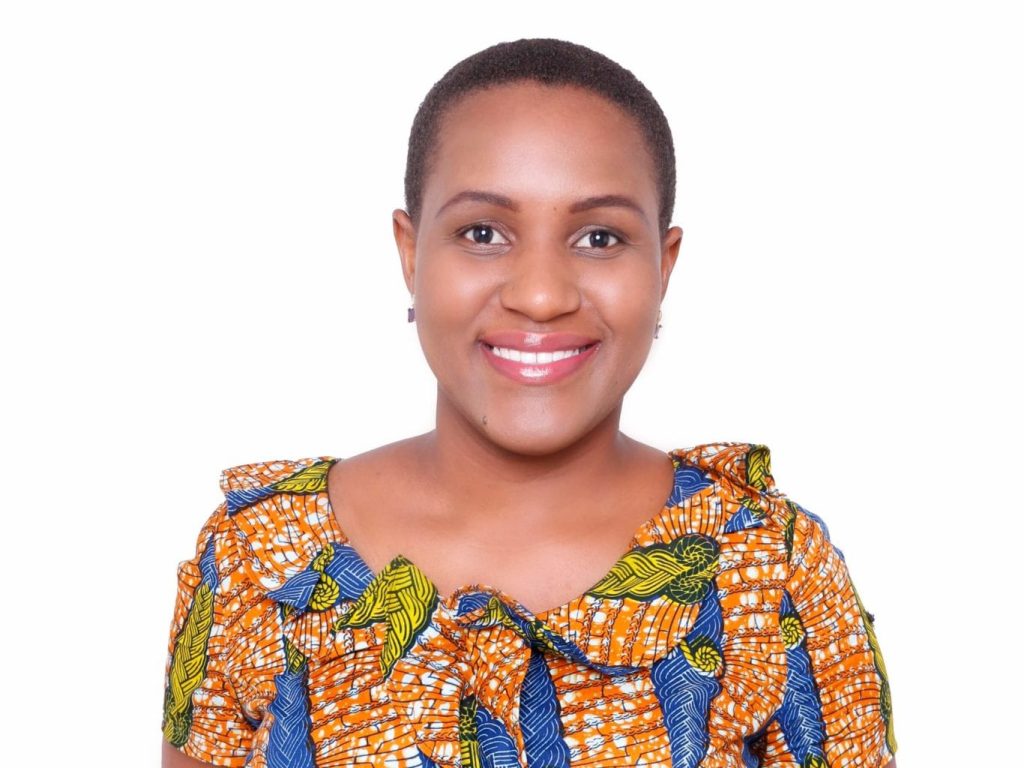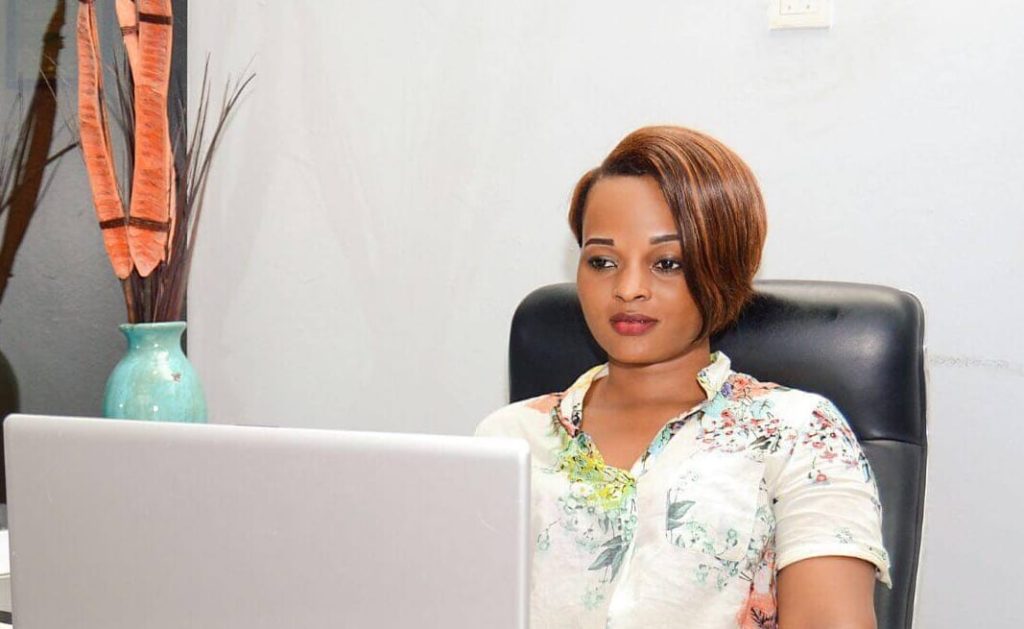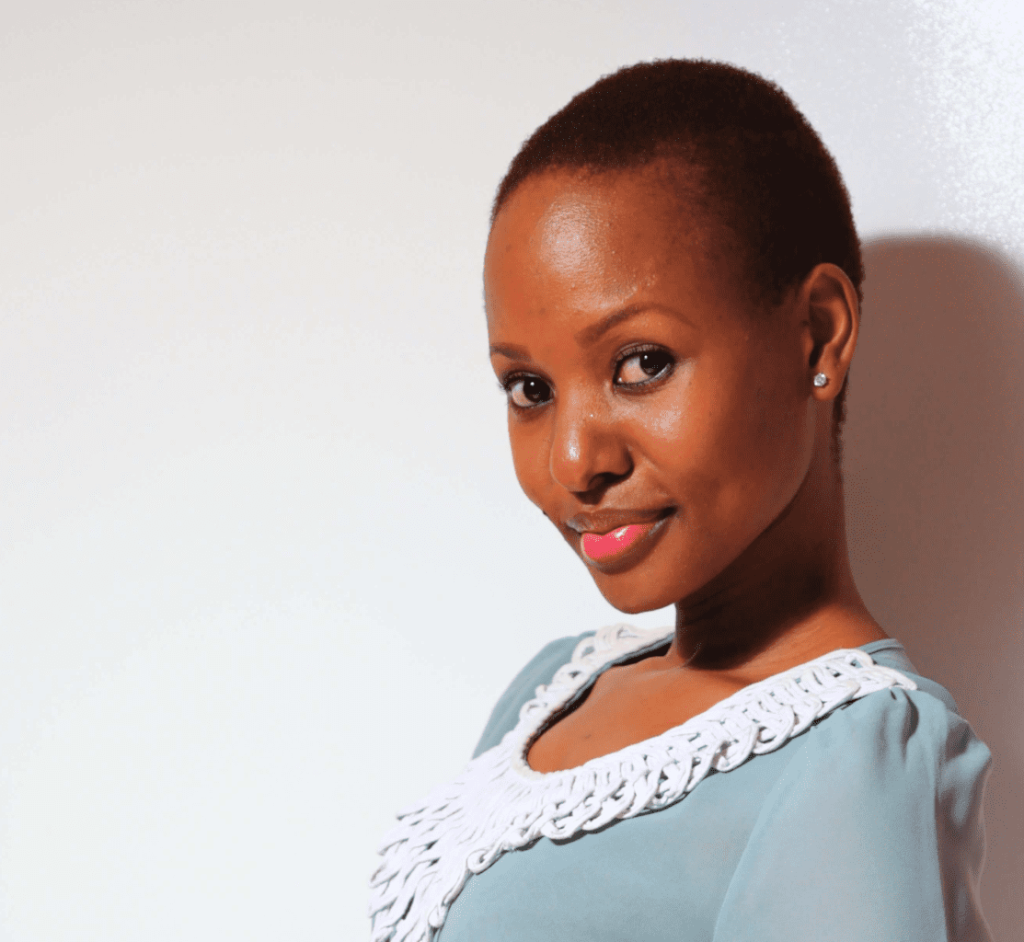Brigite Faustin: The future for women agripreneurs is blossoming

[bctt tweet=”@BrigiteF founder of OBRI is seeing an increase in ambitious agripreneurs across Africa” username=”SheLeadsAfrica”] When Brigite Faustin says the future for women agripreneurs is blossoming, we believe her. The Tanzanian #MotherlandMogul is Founder and Managing Director of OBRI (T) Company. Brigite’s company makes edible oil under the OBRI brand. From raw materials to manufacturing, everything is done in Tanzania. Brigite is a self-taught entrepreneur who has made agribusiness and human development her business. She runs OBRI company as a co-operative social enterprise, ensuring that farmers and communities are supported. Brigite wants to see more women in her industry and has suggestions on how to make this happen. Tell us about the concept of co-operative social enterprise your business is modelled after. Our business model lies behind the concept of co-operative social enterprise. This model promotes economic opportunities for cooperatives organizations, farmers associations and communities through the innovative application of sound business practice. The model supports smallholder farmers to adopt sustainable agricultural practices, improve land use, increase the quality and quantity of their crops, and promote safe and efficient working practices. The model is a win-win to both farmers and the company, as it guarantees a sustainable market channel of agricultural produce to the local farmers while offering quality raw materials to the company without stressing on price fluctuation. How many years have you been in the industry you currently work in? How do you believe your business model will improve this industry? I researched this industry for three years and formalized our company October, last year. I believe our business model will improve this industry because most edible oils in Tanzania are imported and sold at high price. Majority of local companies fail to meet the required quality. Our business model emphasises quality control and value for money. We only source our raw materials from co-operative unions who are dedicated to quality. [bctt tweet=”Brigite Faustin: I researched this industry for 3 years before formalizing my company” username=”SheLeadsAfrica”] Was there a point where you didn’t take your journey seriously? What happened to change that? Yes. Running a business is like riding on a roller coaster. Although it is fun and exciting, there will be times when you’ll be scared and feel powerless. The first three months after I started my company, I wasn’t 100% sure that my brand will stand out in the market and survive the competition. I had limited perception of what my business is capable of! I chose to shed my illusions, understood the core value proposition in my business model and demystified the workings of the business world. Finally, I found myself achieving more than what I have ever dreamed was possible. What are your experiences as a woman in Tanzania’s agriculture and manufacturing sector? My experience has been both challenging and exciting. Like in many parts of Africa, running a food manufacturing company in Tanzania is not easy. There are lots of challenges from the policy point of view to market acquisition. The biggest challenge so far is brand awareness. Being that I am building a proudly African brand, it takes a lot of work to penetrate the market and get people in the know. I have a global plan for my brand. Weak policy implementation and a lack of small business support is another challenge. The government and other key stakeholders have to work on this to encourage more women and young entrepreneurs to invest in the sector. What has been the biggest highlight of your career so far? Seeing my products competing with both local and international brands is the biggest highlight for me. Some of these brands have over 10-20 years in the market! [bctt tweet=”Brigite Faustin: Our business model emphasises quality control and value for money.” username=”SheLeadsAfrica”] What keeps you going every day? I always believe each new day brings an opportunity to get it right. I’m driven to become and remain successful. My goal is to grow and sustain my company. As my business grows, so does my responsibilities. I see my company in the next three years growing across Eastern and Southern Africa, employing young minds and contributing to the society. This keeps me going and pushes me to get it right every day. Interest in agriculture is slowly growing across the continent, what do you think needs to be done to encourage more women to go into this sector? I see an increase in ambitious, devoted and motivated agripreneurs daily across the continent. It is inspiring! Women are no longer waiting for someone to dish them riches on a platter of gold. They are ready to work for it and I am confident that the hard work will pay off soon. Even with the success stories, a few has to be done to encourage more and more women into this sector. [bctt tweet=”Brigite Faustin: I always believe each new day brings an opportunity to get it right.” username=”SheLeadsAfrica”] 1. Mentorship, coaching and role models. I wish when I first began my business that I had a coach. Someone to learn to and take me through the journey. I would not have made so many careless and uninformed mistakes. This would have helped me save a lot of resources (time and money) and I could probably be one or two step ahead of where I am today. Again, the more coaching and women role models there are, the more women will think, ‘maybe I could actually do this’. So hopefully, as we start to get more role models in the agriculture industry coming through, more women will think seriously about their ideas. 2. Support As agriculture has become more commercially-orientated, the glass ceilings which held restrictions have been lifted. There are now far more opportunities within agriculture businesses for women to actively participate. Governments have a key role to play in this relation. They should support access to land, provide financial opportunities and design friendly policies that will encourage more women to take agriculture seriously. The future for women
Lilian Makoi: If it is not new, risky & disruptive, we don’t put our efforts to it

[bctt tweet=”@lilly_makoi of @jamiiafrica is bringing affordable health insurance to Tanzania” username=”SheLeadsAfrica”] Lilian Makoi is doing her part to transform her country through innovative solutions. Although she’s co-founded a number of start-ups but our main focus here is Jamii Africa. Jamii Africa is a start-up that provides health insurance targeted at Tanzania’s low income population. Most start-ups may want to target a middle-class population but Lilian sees profit in those that earn less than $70 a month. The numbers add up, that’s 47 million people compared to 10,000. When Lilian isn’t doing her best to improve the health care of Tanzanians through Jammii, she’s a mentor. Lilian and her husband form a formidable duo, recognising opportunities and investing in them. What is health insurance like in Tanzania and how has Jamii Africa impacted on it? In Tanzania, the penetration of health insurance is as low as 4.5% and this makes the formal sector its only population. The main reason they have health insurance is because they get it as benefit from the employer. The middle income population that can afford healthcare financing anyways make 19.6% of the population.76% are the low income population —from the informal sector, struggling with healthcare financing. This low income population earns less than $70 a month. For them, income is also dynamic and savings is a luxury. This population ends up facing high rate of maternal deaths, home births and deaths from curable diseases. Jamii comes as the much needed solution to this ignored population. Our mobile technology performs all the administration activities of the insurer. Jamii is also matched in strategic partnership with Jubilee Insurance and Vodacom. This helps cut insurance administration cost by 95%! In all, this results in a health insurance product at $1 a month. It immediately makes health insurance affordable to 47 million people in just Tanzania! Jamii is already impacting the lives of over 8,000 families. [bctt tweet=”Lilian Makoi: It took us over 10 meetings to get Vodacom Tanzania’s buy in to Jamii” username=”SheLeadsAfrica”] How did you manage to crack partnerships with Jubilee Insurance and Vodacom Tanzania? We had a great product and knew how to communicate the value we were set to bring to them as partners. All we needed was a platform to communicate this to them. Although it wasn’t easy, we managed to get their attention through constant persuasion and personal branding to establish relevance. Why target the low income population in particular? How do you make a profit doing so? We are passionate about the low income population. First, they have real problems and that means we are solving real problems. This gives us purpose and global impact in all we do. Second, it is where the money is! We make profit, although marginal but it is income from over 47 million people compared to ‘big chunks’ from just 10,000 people! [bctt tweet=”@lilly_makoi – The low income population is where the money is!” username=”SheLeadsAfrica”] What does innovation mean to you? What would you say is unique about your approach to innovation? We live to and for innovation! If it is not new, risky and disruptive, we don’t put our efforts or energy to it! We believe that, it is only Africans that can change Africa for the better. So long as no one is doing anything ‘different’, we will always be a culprit of copycat products and solutions for problems that are not even ours. We love to be pioneers to building highly innovative original solutions and understand the rewards of doing so. What does it take to build a micro-health insurance product in an African country? Four things; A very innovative team, Tons of research, A great insurance partner, A strong telecom partner and Atop class product! [bctt tweet=”Women should understand what they are passionate about & work towards monetising it” username=”SheLeadsAfrica”] What will you need to go live in 14 other markets in Africa and impact 3 million lives in 2017? We will need to partner with multiple local companies in these markets. These partners should already have relationships with telecom operators in their markets and have fair understanding of the insurance landscape. We are close to finalising a partnership with two local companies outside Tanzania that have strong relationships with stakeholders in the identified markets. We expect to finalise ground work required by May 2017 and go live before the end of the year. You’ve co-founded two other companies, what goes into your decision to work on other start-ups? Will you advice other women to follow your footsteps? I have co-founded two other companies and a lot more will come. I have the privilege of working with my husband who is as innovative. We enjoy researching and building solutions together, and mentoring people. We naturally spot opportunities and visualise solutions. Then we choose to either implement directly or pick young passionate talent to mentor through building these solutions. I definitely advice women to spend time understanding what they are passionate about and work towards acquiring skills to monetise their passion. I believe women that have had the privilege to education and/or exposure pursue bigger/newer/innovative business than what we have been taught to aspire. If you can, lets change the world! If you’d like to share your story with She Leads Africa, let us know more about you and your story here.
Helen Dausen: If used well, fear can be your propeller

There was a time when it wasn’t easy for Tanzanian women to find a skincare product that was 100% natural and meant for the African skin. That was before Tanzanian-made African beauty brand, Nuya’s Essence came along. Nuya’s Essence is a natural bath and body care brand that handcrafts natural products from botanical oils, butter, and herbs. The product is made from the purest botanical and non-toxic ingredients there is. Largely, the ingredients are sourced locally and from South Africa, Ghana, India, and Morocco. Njeri Meja, our SLA contributor spoke to former beauty queen and formulator of Nuya’s Essence, Helen Dausen. She found out more about how Helen’s beauty queen past helped her business and the steps Helen takes to improve her hustle. What motivated you to start Nuya’s Essence? I have always been so careful about how I nourish my skin. I think I got it from my mother. As a young girl, she would apply olive oil and pure coconut oil on my sisters and I. I had also been unemployed and needed to do something about my life. While in college, I wondered if I could get a quality soap to complement my beauty care routine. So I went looking and found some DIY ideas for soap. I started mixing stuff at home and sharing recipes with friends. I would also tell them what to apply or what food to eat and the like. The idea of Nuya’s Essence first gained root in my heart in April 2013. However, we didn’t start marketing it publicly until in June 2014. How did you start? I started small with support from my parents. I began with making handmade skincare products from the backyard at home. I sold to my mom’s salon, farmers market, pop-up shops, and friends. Did being a beauty queen help your business in any way? Yes, it did. As the crowned Miss Universe Tanzania 2010, people often asked about my skin and hair-care routines. That also fueled my decision to build a skincare brand. Who is your target audience? Actually, everyone can use my products. The marketplace is saturated with products made with harmful chemicals patronized by unsuspecting African women. I wanted to create something great enough to be an option to the mainstream skincare products. Nuya’s Essence is for women looking to go all natural and adopt a healthy lifestyle. Tell us more about your range of products Our natural skincare range is formulated to work with all skin types. The ingredients are carefully selected and suited for everyone. We do not add fillers, toxic chemicals or test them on animals. Our products are recyclable, bio-degradable, eco-friendly and safe enough to be used by kids. It can be used on sensitive skin, very sensitive and mature skin. We produce them in small batches with our customers’ satisfaction in mind and they do serve the purpose. Did I tell you that they also smell amazing? Oh yes, they do! Currently, our product range includes natural handmade soaps, body oil, body butter, body scrub, 100% pure coconut oil, and raw shea butter. However, we keep working at developing new products. How have you improved yourself as an entrepreneur? I just completed a Mandela Washington Fellowship program for Young African Leaders. The intense 6-week-long program ended on the 4th of August 2016. I worked hard at it and formed great partnerships and friendships. It was a great experience and boost for my personal and business growth. I look forward to better opportunities. I have also done some training in natural/organic skincare formulation in Johor Bahru, Malaysia. There, I learnt the basics of formulating a perfect product. I still study online, read lots of books on the subject and strive to improve my beauty range or create new ones. Any challenges? How do you mitigate them? My biggest challenge so far is getting customers to believe in our products, especially women. I started using my products long before I sold them. This made me more comfortable and confident to tell other women about them. Personally, I have experienced the healing powers of plants and I have been able to achieve youthful, flawless, glowing and evenly-toned skin. However, getting clients to believe in you is hard. To tackle this, I give free samples for trials and this has worked. They usually return with their friends and this time, they actually buy. Word goes round and we’ve done well so far. How would you advice a woman looking starting something like Nuya’s Essence? Fear will always be a constant factor but if used well, can be your propeller. You may never enjoy absolute support. Money may never be enough. But girl, you can rise above it all. The trick is to start with what you have at the moment and then grow in small paces. Last words? One of my favorite successful businessmen said, “The harder you work, the luckier you get.” I believe there are so many opportunities out there. You just have to be ready to take them. Be willing to take risks and accept failure as a learning curve. The only real failure is not trying at all. After all, what’s the worse that can happen? Always believe in something. Personally, my hope and faith are in God. I am at peace with myself, my work and the people around me and that helps. I set out to glorify Him in everything I do as a person or business woman. Always have something or someone to fall back on for support. You can never go wrong with this. Want to see women you know featured on SLA? Tell us what amazing things women are doing in your communities here.
10 East African songs that will get you hyped for your next big interview

No matter how many times you practice your introduction or write down the skills you’ll bring to the position, interviews can be the most stressful part of getting a new job. We all know the stakes are high for an interview – you can go from the bottom of the pile to the #1 candidate by presenting yourself well and telling a compelling a story. With so much riding on your success, you can’t go into the interview room full of jitters and unsure of yourself. The best way to make yourself stand out is to be confident and calm. Not sure how to do that? We’ve pulled together a list of 10 East African songs to help center yourself and find some inner peace before the big moment. 1. Habida – Superwoman As the title suggests, this song will get you into a ‘conquer the world’ mood. With its catchy beat and uplifting lyrics, it is just the kind of song you need to conquer an interview. 2. Octopizzo – Black star Straight from the chorus, it is clear that the song is telling the listener to believe in themselves. “Forever you will be, a shining star… You will always be, a black star…” Go forth black star and rock that interview. 3. Khaligraph Jones – Yego This song is about Julius Yego, the Kenyan javelin thrower who broke the African record twice and Kenya’s national record four times. Seeing as the song is based on a champion, it shouldn’t be hard to get into a winning spirit when listening to this song. 4. Juliani – Exponential potential The title says it all and so does the video. The video is set within the confines of a boardroom which seems appropriate given the lyrics of the song. This is just the song you need to get the energy to unleash your full potential. 5. STL – Dreamer Stella Mwangi (STL) uses this song to encourage all the dreamers to go out into the world and follow their dreams while recounting her own story. It will definitely get you in the mood to conquer your fears and ace the interview. 6. Wangechi feat Karun – Analogue dreamer Although on the surface, the song seems to be talking about following your dreams, the more profound message is about being courageous enough to be different and to be you in a world clogged with similarity. Just the dose of courage anyone needs before an interview. 7. Muthoni the Drummer Queen (MDQ) – Nai ni ya who? This song was written for the city of Nairobi and what it takes to make it. But the song’s universal message also applies to any other city in the world. At its core, the song emphasizes the importance of getting up and doing something to change your life. The track’s awesome beat will get you hyped in seconds. 8. Avril feat Rabbit King Kaka – Ninaweza ‘Ninaweza’ means ‘I can’ in English. The song stays away from metaphorical analogies and remains as simple as its title suggests. It is the only motivation you need to get hyped for your interview. The message is clear, ‘You can.’ 9. Vanessa Mdee – Hawajui With a colourful video, Mdee encourages her listeners to overcome any obstacles that come their way, including unfair judgement from people who have no idea who you are. 10. Jua Kali – Baba Yao The song begins with these words, “Hauezi niekea chini, me ni baba yao” “You can’t put me down, I am a champion” (English Translation). Side Note: The Direct translation of the phrase, ‘me ni baba yao’ is ‘I am their father’ which is a sheng colloquialism used to refer to oneself as the best or a champion among colleagues. Which of these are your favorites? Any ones we missed? What is your all time favorite song for getting pumped your big interviews?
